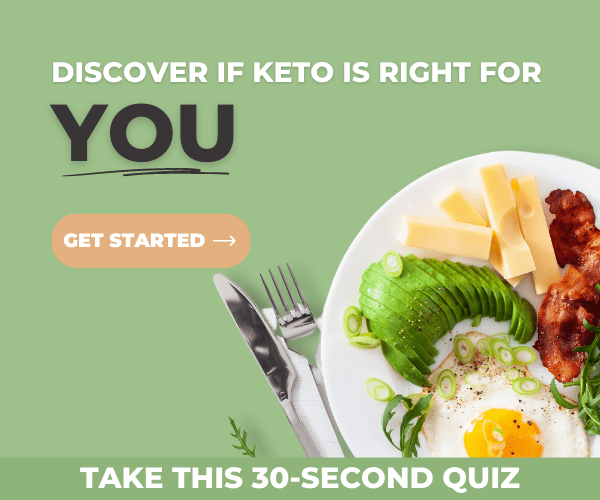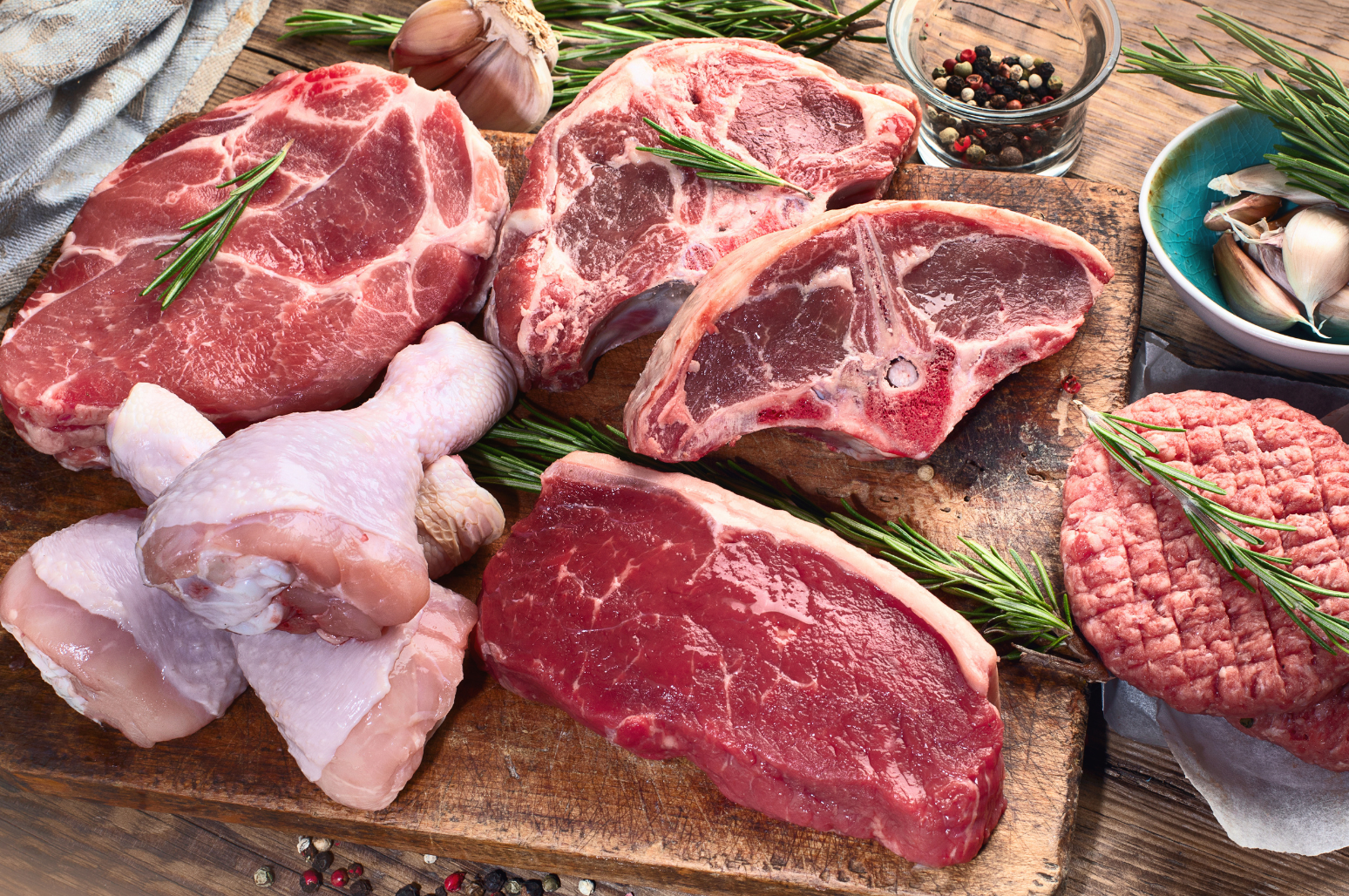
The word strict might make you remember that teacher in school who always made you sit up straighter in your chair. Strict keto is one version of the ketogenic diet. With all the different types of ketogenic diets, you might be wondering about strict keto. What is strict keto, and why do people try strict keto? What are the benefits? What’s the difference between strict keto and lazy keto? Let’s explore.
What Is Strict Keto?
There is no essential carbohydrate, but there are essential fatty acids and proteins. [1] On keto, you significantly lower your intake of carbs, consume moderate protein, and increase your intake of foods high in healthy fats like:
- Fatty fish
- Meats
- Heavy cream
- Coconut cream
- Olive oil or coconut oil
- Avocado
- Nuts and seeds

Nutrient-dense, fiber-rich, low-carb foods like cruciferous veggies and leafy greens can help you achieve your goals on keto. Your body and brain use ketones for fuel, which are advantageous molecules your body produces when you switch to burning fat instead of sugar (carbs). [2]
A strict keto diet simply refers to a traditional and stricter approach to getting your body into ketosis that typically involves tracking macronutrients.
Macronutrients
Macronutrients are the three main nutrients of the human diet: fat, protein, and carbohydrates. The goal is to consume a certain percentage of macros throughout the day. For example, someone on strict keto might have a goal of 25% protein, 70% fat, and 5% carbs. Check out our informative article for more info on how to track macronutrients. Especially for first-time keto dieters or beginners, it might be difficult to get your body into a state of ketosis. Tracking macronutrients can ensure you’re on track to getting into ketosis and can give you a better idea of how well you’re sticking to your chosen eating plan. [3]
Strict keto often involves counting calories, too.
Testing Ketones
Strict keto dieters often test their ketones and sometimes their glucose at home to see if they’re in ketosis, particularly if they’re dealing with blood sugar issues.
Lower Carbohydrate Count
Strict keto typically has a lower carbohydrate count (15-30 grams daily) to ensure your body reaches and maintains ketosis. The exact percentage, calories, and grams of carbohydrates you choose are up to you and vary from person to person. Some people on strict keto include keto sweeteners like erythritol, while others don’t. Sometimes, strict keto doesn’t involve tracking net carbs, but instead means tracking total carbs of 30 grams or less daily.
Focus on Healthier Natural Foods
To help their body get into ketosis and burn fat efficiently, those on strict keto often choose to stick to healthier whole foods over artificial and processed foods or keto junk foods. Many following strict keto aim for the therapeutic effects for health reasons as well as for weight loss, focusing on nutritious foods and tracking macronutrients. They might choose meal prep to make things easier and more streamlined.
Strict keto is sometimes called clean keto because of the shift to cleaner and healthier whole foods. On strict or clean keto, the closer a food is to nature, the better. When affordable and available, someone on clean keto might aim for higher quality foods and choose grass-fed beef, wild-caught seafood, free-range eggs, and non-GMO and organic products.
Gluten-Free
Sensitivities and allergies to gluten are everywhere these days. Gluten-free keto could be the best choice for those who are also dealing with a medical condition or allergy, such as an autoimmune disease. People tailor the keto diet to suit their individual needs. For some, that means giving up gluten or other common food allergens, like soy or eggs.
Intermittent Fasting
After they get the hang of it, strict keto dieters might implement intermittent fasting to ramp up their results. Fasting means refraining from eating food for a period of time to give your digestive system a break. This method works well for people who tend to eat too much too often, even if it’s low carb.
You already fast overnight during sleep (unless you’re raiding the fridge at 3 AM), and extending the time before you break your fast–for instance, by skipping breakfast–can help you get into ketosis and lose weight faster. Read our detailed article for more info on intermittent fasting.
What Is Lazy Keto?
For someone wanting the benefits of low carb with a little more flexibility and convenience, lazy keto is an acceptable long-term approach that may help people stick with keto.
Lazy keto is a more laid-back and relaxed way of following a ketogenic diet that doesn’t track macronutrients or calories and may allow daily carb counts of up to 50 grams.

Metabolically-Adapted
A lazier or more relaxed approach is better for someone with more experience on keto or someone who is more metabolically adapted. It takes time for your metabolism to adapt to producing ketones and using fat for fuel instead of sugar (glucose). It also takes time for you to understand how your body handles ketosis. The same foods that kick someone else out of ketosis might not be so drastic for you.
Top tip: consuming fat and fiber with your carbs helps slow the blood sugar spike.
Ideal for Busy People
Lazy keto allows more leeway for people with busier lives or for people who don’t have specific wellness, weight loss, or fitness objectives.
Not Nutrient-Focused
Lazy keto also tends to allow for more keto sweet treats, snacks, processed keto foods, and low-carb tortillas or other packaged goods. This laid-back version of keto involves eating some foods that aren’t necessarily considered ‘healthy’ so long as they’re keto-approved.
Food quality and where your macronutrients are coming from matters less on lazy keto. A keto diet that’s low in nutritious, antioxidant-rich whole foods and includes more low-carb processed or junk foods might also be called a dirty keto diet.
Most health experts and advocates agree that fried and processed foods are okay from time to time, but they shouldn’t be staples of your diet, and daily or more frequent consumption of these foods can lead to inflammation. Inflammation plays a role in countless chronic diseases. These foods can cause digestive upset, and they’re usually lacking in important vitamins and minerals.
You can still lose weight and experience success on lazy keto simply by limiting your carbohydrate intake. Still, you likely won’t experience as many of the other benefits that strict keto provides.
What’s Best for You?

If you’re a newbie or you’re unsure how your body handles ketosis and certain foods, it’s recommended you try a traditional strict keto diet. Over time, you’ll become more comfortable with your preferences and how your body responds to this new way of eating. You’ll know what foods make you feel the best and which foods to steer clear of. When you reach that comfort level, you might decide to soften your approach and skip calculating macronutrients or counting calories.
A possible downside of a stricter version of keto includes having fewer options at restaurants and possibly avoiding or limiting social gatherings due to limited keto foods. Fortunately, going strict keto doesn’t mean giving up completely on social events or restaurants. Check out our helpful article on navigating restaurants on keto.
You’ll probably want to try a more nutrient-dense diet if you have specific health needs. Processed foods are likely to have more additives and fewer micronutrients. Processed and artificial foods in general are also associated with negative health effects, including diabetes, weight gain, heart disease, and overall mortality. Trans fats and certain additives are linked to adverse conditions like heart disease, obesity, type 2 diabetes, and cancer. [4] [5] [6] [7]
Research shows your body has an easier time digesting and using nutrients from whole foods rather than supplements. [8] What’s more, sneaky added sugars found in plenty of processed foods can kick you out of ketosis. The effort you put into a strict keto diet typically pays off with results like better heart health, weight loss, healthier skin, and improved blood sugar control.
On the other hand, if you’re busy, travel a lot, and are not as concerned with consistently maintaining ketosis, a laxer version of keto might be the right choice for you, and you’ll still likely experience positive results. Compared to the standard Western diet, even lazy keto provides improvements, such as blood sugar control.
Most importantly, don’t stress; everyone is different and a cookie-cutter approach doesn’t always work. Find keto in your own way, and to help on your journey, take a look at some of the many resources here at Ketogenic.com, from the keto doctor finder tool and food finder to our recipes and keto calculator.
Have you tried strict keto? What results did you experience? Discuss strict keto and connect with other keto dieters here at Ketogenic.com
References
Westman, E. C., (2002). Is dietary carbohydrate essential for human health? The American Journal of Clinical Nutrition, https://doi.org/10.1093/ajcn/75.5.951a
Athinarayanan, S. J., Adams, R. N., Hallberg, S. J., McKenzie, A. L., Bhanpuri, N. H…McCarter, J. P. (2019). Long-term effects of a novel continuous remote care intervention including nutritional ketosis for the management of type 2 diabetes: A 2-year non-randomized clinical trial. Front Endocrinol (Lausanne), DOI: 10.3389/fendo.2019.00348
Shilpa, J., & Mohan, V. (2018). Ketogenic diets: Boon or bane? Indian J Med Res, 148(3), 251-253. DOI: 10.4103/ijmr.IJMR_1666_18
Srour, B., Fezeu, L. K., Kesse-Guyot, E., Alles, B., Mejean, C…Touvier, M. (2019). Ultra-processed food intake and risk of cardiovascular disease: A prospective cohort study (NutrNet-Sante). BMJ, DOI: 10.1136/bmj.l1451
Marti, A. (2019). Ultra-processed foods are not “real food”, but really affect your health. Nutrients, 11(8), 1902. DOI: 10.3390/nu11081902
He, K., Zhao, L., Daviglus, M. L., Dyer, A. R., Van Horn, L…Stamler, J. (2008). Association of monosodium glutamate intake with overweight Chinese adults: the INTERMAP study. Obesity (Silver Spring), DOI: 10.1038/oby.2008.274
Iqbal, M. P. (2014). Trans fatty acids: A risk factor for cardiovascular disease. Pak J Med Sci, DOI: 10.12669/pjms.301.4525
Ward, E. (2014). Addressing nutritional gaps with multivitamin and mineral supplements. Nutr J, DOI: 10.1186/1475-2891-13-72









